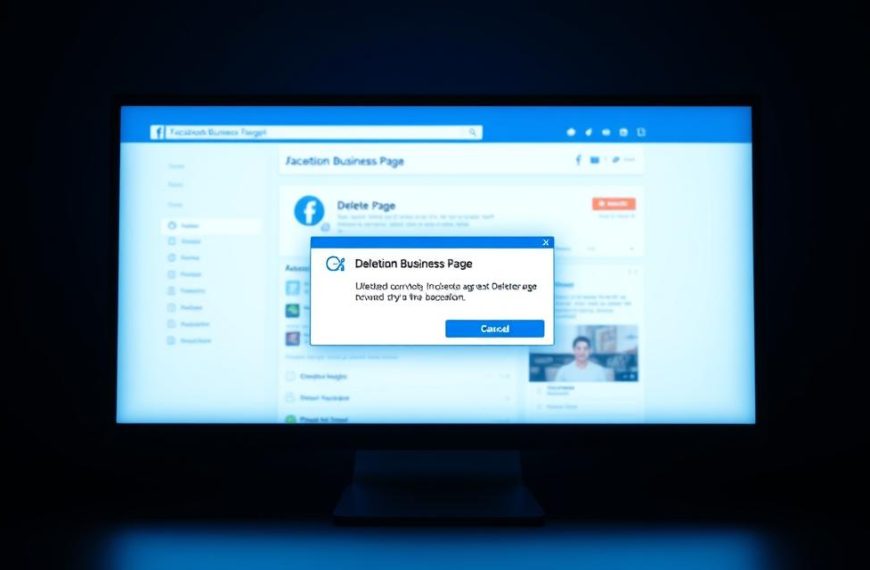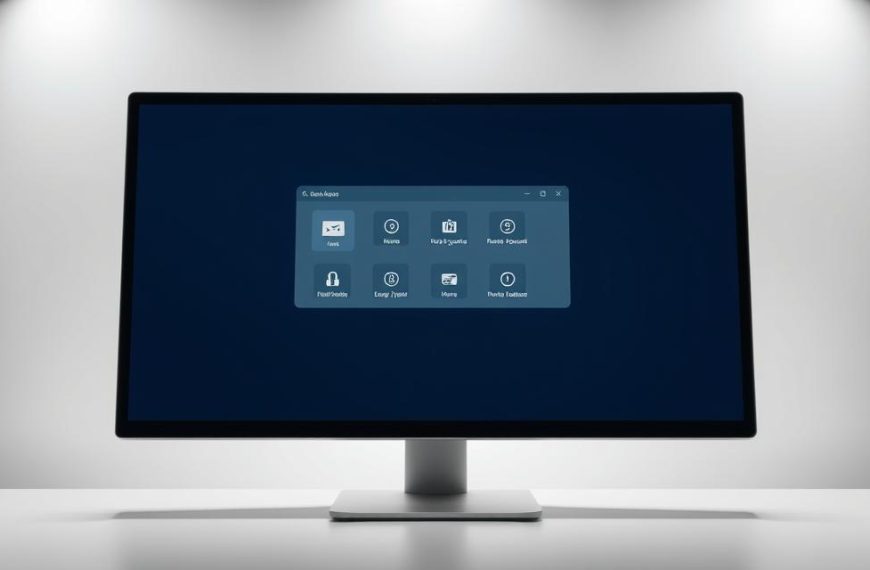Embarking on a cleaning business venture can be a lucrative entrepreneurial opportunity, given the industry’s relatively low barrier to entry. With initial investments ranging between $2,000 and $6,000, it’s an attractive option for those looking to start a new venture.
The cleaning industry has experienced consistent growth, driven by steady demand for both residential and commercial cleaning services. To capitalise on this trend, it’s essential to develop a comprehensive business plan, understand legal requirements, and implement effective operational strategies.
By doing so, entrepreneurs can establish a profitable business that offers flexible working arrangements and significant income potential. With the right planning and execution, a cleaning company can thrive in this competitive market.
The Cleaning Industry: A Lucrative Business Opportunity
The cleaning industry is booming, presenting a lucrative opportunity for entrepreneurs. Everybody needs their house cleaned at least once, which explains the high demand for cleaners. The consistent growth of this industry has inspired many to become cleaning business owners and take advantage of the demand.
Why the Cleaning Business is in High Demand
The cleaning industry continues to experience steady growth as both residential and commercial clients prioritise cleanliness but lack the time to maintain it themselves. Economic trends show that even during downturns, cleaning services remain in demand as they’re considered essential by many households and businesses. This consistent demand makes the cleaning business a stable and profitable venture.
Benefits of Starting Your Own Cleaning Company
Starting a cleaning business offers numerous advantages, including low startup costs, minimal overhead expenses, and flexible scheduling options. The cleaning industry presents opportunities for specialisation in areas such as eco-friendly cleaning, deep sanitisation, post-construction cleanup, or luxury home services. Success in the cleaning business is largely dependent on reliability, attention to detail, and consistent quality service delivery.
Some key benefits of starting a cleaning business include:
- Low initial investment and minimal ongoing expenses
- Flexibility in scheduling and service offerings
- Opportunities for specialisation in niche areas
- Potential for substantial profits, with one-person operations earning upwards of $56,000 annually
- Gradual scalability as you build your client base and reputation
Overall, the cleaning industry offers a promising opportunity for entrepreneurs to establish a successful and profitable business. With the right approach and a focus on quality service, it’s possible to achieve significant success in this growing market.
Planning Your Cleaning Business for Success
The key to a thriving cleaning business lies in meticulous planning and preparation. Before launching your venture, it’s crucial to understand your target market, define your services, and develop a comprehensive business plan.
Identifying Your Target Market and Service Area
Effective business planning begins with thorough market research to identify your ideal customer base and understand their specific cleaning needs. When starting a cleaning business, carefully define your service area based on population density, competition levels, and travel logistics to maximise efficiency.
- Conduct competitor analysis to identify gaps in the market that your company can fill.
- Consider the different types of cleaning services you might offer: residential regular cleaning, deep cleaning, move-in/move-out services, or commercial office cleaning.
Determining Your Cleaning Services and Pricing Strategy
Developing a comprehensive service menu requires balancing what clients need with what you can realistically deliver at your desired quality standard. Your pricing strategy must account for multiple factors including market rates, service complexity, supply expenses, travel time, and desired profit margins.
Creating different service packages (basic, standard, premium) allows you to cater to various client types and budgetary constraints.
Creating a Comprehensive Business Plan
A well-structured business plan serves as your roadmap and should include market analysis, operational procedures, marketing strategies, and financial projections. Planning should include detailed financial projections that account for all startup and ongoing expenses to ensure your business model is sustainable.
Identifying your unique selling proposition early will help differentiate your cleaning business from competitors and inform your marketing approach.
By following these steps, you can create a solid foundation for your cleaning business and set yourself up for long-term success.
How to Start a Cleaning Business: Legal Requirements
Establishing a cleaning business requires a thorough understanding of the legal requirements that govern its operations. Compliance with these regulations is crucial to avoid potential legal issues and ensure the smooth operation of your business.
Choosing Your Business Structure
Selecting the appropriate business structure is a critical decision that impacts your tax obligations, personal liability, and ability to raise capital. Common options include sole proprietorship, Limited Liability Company (LLC), partnership, or corporation. A sole proprietorship is the simplest setup but offers no separation between personal and business assets, potentially putting your personal finances at risk. In contrast, an LLC provides personal liability protection while maintaining tax flexibility, making it a popular choice for many cleaning business owners.
Registering Your Business Name
Before registering your business, you must ensure that your chosen business name is available. This involves searching for your desired business name on the relevant state’s business filing services website, such as the PA Department of State’s website. Once you’ve confirmed the name’s availability, you can proceed with filing a fictitious business name statement and potentially registering trademarks to protect your brand.
Obtaining Necessary Licenses and Permits
Depending on your location, you may need specific licenses and permits to operate a cleaning business legally. These can include general business licenses, environmental permits, or special certifications. It’s essential to research the specific requirements for your area to ensure compliance and avoid potential penalties.
Tax Registration and Requirements
Tax registration is another critical aspect of establishing a cleaning business. This includes obtaining an Employer Identification Number (EIN) from the IRS, registering for state tax IDs, and potentially collecting sales tax on services. Understanding your tax obligations early on helps prevent costly penalties and ensures proper financial planning for quarterly estimated tax payments.
In conclusion, understanding and complying with the legal requirements is a crucial step in starting a successful cleaning business. By choosing the right business structure, registering your business name, obtaining necessary licenses and permits, and registering for tax purposes, you can ensure that your business is well-established and compliant with all relevant regulations.
Essential Insurance Coverage for Cleaning Businesses
The cleaning industry is fraught with risks, making it essential for businesses to secure adequate insurance coverage to mitigate potential losses. As a cleaning business owner, having the right insurance is crucial for safeguarding your company’s financial stability and reputation.
General Liability Insurance
General liability insurance is the foundation of protection for cleaning businesses, covering third-party bodily injury, property damage, and advertising injury claims. Many commercial clients require proof of general liability coverage before hiring cleaning businesses, making this insurance essential for business growth.
Commercial Property Insurance
Commercial property insurance protects your business assets, including office space, storage facilities, and owned equipment, against damage from fire, theft, and certain natural disasters. This coverage is vital for ensuring that your business can recover quickly from unforeseen events.
Workers’ Compensation Insurance
Workers’ compensation insurance is legally required in most states once you hire employees. It covers medical expenses and lost wages if staff members are injured on the job, ensuring that your business remains compliant with state regulations.
Tools and Equipment Coverage
Tools and equipment coverage provides protection for your cleaning supplies and equipment whether they’re damaged at your location, in transit, or at a client’s property. This coverage is essential for maintaining the continuity of your business operations.
Having comprehensive business insurance in place not only protects your cleaning business from various risks but also enhances your credibility with potential clients. It’s a critical step in establishing a successful and sustainable cleaning business.
Equipment and Supplies: Getting Started with Low Investment
The key to successfully starting a cleaning business lies in acquiring the right equipment and supplies without breaking the bank. When you start cleaning business operations, investing in quality equipment is crucial for delivering professional results that satisfy clients.
Essential Cleaning Supplies for New Businesses
New cleaning businesses require a range of essential supplies to operate effectively. These include multi-purpose cleaners, disinfectants, microfibre cloths, vacuum cleaners, mops, brooms, and protective equipment. Creating a detailed inventory system helps track supplies usage, manage costs, and ensure you never arrive at a job without necessary equipment.
Equipment Purchasing vs. Leasing Options
When it comes to acquiring equipment, new business owners must decide between purchasing and leasing. Comparing these options can help manage cash flow while still accessing professional-grade cleaning equipment. For instance, leasing can be a viable option for expensive equipment like vacuum cleaners and window cleaning machinery.
Starting a Cleaning Business with Limited Funds
When funds are limited, prioritise purchasing versatile equipment that can handle multiple cleaning tasks. Strategic purchasing decisions, such as buying basic supplies in bulk, can significantly reduce startup costs. Additionally, consider environmentally friendly cleaning supplies, which may have higher initial costs but can become a valuable selling point for eco-conscious clients.
Properly maintaining and sanitising your equipment between jobs extends its lifespan and ensures consistent cleaning results, protecting your investment. By starting with a minimal but effective supply kit, you can then reinvest profits to gradually expand your equipment inventory as your business grows.
Marketing Strategies to Attract and Retain Clients
A well-planned marketing strategy is essential for attracting and retaining clients in the cleaning industry. Effective marketing enables your cleaning business to stand out in a competitive market, build a loyal client base, and drive growth.
Building Your Online Presence
Having a professional website is crucial for any business, including cleaning services. Your website should showcase your cleaning services, pricing packages, service areas, and client testimonials. This not only improves your visibility in local search results but also provides potential clients with the information they need to make informed decisions.
Networking and Word-of-Mouth Referrals
Networking with complementary businesses such as real estate agents, property managers, and interior designers can create valuable referral partnerships for your cleaning company. Implementing a referral programme that rewards existing clients for recommendations can significantly accelerate your company’s growth through trusted word-of-mouth marketing.
Creating a Unique Selling Proposition
Developing a unique selling proposition (USP) that differentiates your cleaning business from competitors is vital. Your USP might focus on eco-friendly practices, specialised services, guaranteed results, or exceptional customer service. By highlighting what sets your business apart, you can attract clients who are looking for something specific.
To ensure the effectiveness of your marketing strategies, it’s crucial to regularly review and adjust your marketing plan. This includes tracking metrics such as client acquisition costs, conversion rates, and customer lifetime value to optimise your marketing budget for maximum return.
Conclusion: From Startup to Sustainable Cleaning Business
The journey to establishing a thriving cleaning business involves several key steps, including setting up robust systems and ensuring adequate insurance coverage. As you start cleaning operations, it’s crucial to establish systems and procedures that can be replicated as you grow and potentially hire employees to maintain service consistency.
Successful business owners in the cleaning industry understand that balancing competitive pricing with profitability is vital. This balance, combined with continuously evaluating and adjusting your services to meet market demands, will be key to your company’s success. Regularly reviewing your cleaning business insurance coverage, particularly liability insurance and general liability policies, ensures adequate protection as your business expands.
As your cleaning service transitions from a solo operation to a company with multiple team members, investing in employee training and retention becomes crucial. Financial management also becomes increasingly important as your business grows—tracking expenses, managing cash flow, and planning for tax obligations helps ensure long-term success. By following these steps and maintaining a focus on quality and customer satisfaction, you can build a sustainable cleaning business from the ground up.
To achieve long-term success, business owners should consider diversifying their services, adopting technology to improve operational efficiency, and celebrating milestones along the way. By doing so, you’ll not only ensure the longevity of your cleaning company but also create a reputable brand in the cleaning industry.
FAQ
What type of insurance do I need for my cleaning business?
As a cleaning service provider, you’ll need general liability insurance to protect against third-party claims for property damage or bodily injury. You may also require commercial property insurance to cover your business assets, such as equipment and supplies.
How do I determine my pricing strategy?
To determine your pricing strategy, consider factors such as the type and frequency of services offered, competition, and target market. You should also calculate your costs, including labour, equipment, and supplies, to ensure you’re charging enough to maintain profitability.
What are the benefits of registering my business name?
Registering your business name provides legal protection and helps to establish your brand identity. It also allows you to open a business bank account, obtain loans, and enter into contracts.
Do I need a business plan for my cleaning company?
Yes, a comprehensive business plan is essential for any new business, including a cleaning company. It outlines your goals, target market, marketing and sales strategies, financial projections, and operational plan.
What kind of equipment and supplies do I need to get started?
The essential cleaning supplies for new businesses typically include cleaning solutions, cloths, mops, and vacuum cleaners. You may also need equipment such as ladders, step stools, and carts. Consider leasing or purchasing equipment to reduce initial costs.
How can I market my cleaning services to attract clients?
Effective marketing strategies for cleaning services include building a strong online presence through a website and social media, networking with potential clients, and leveraging word-of-mouth referrals. You can also create a unique selling proposition to differentiate your business from competitors.
What are the key factors to consider when choosing a business structure?
When selecting a business structure, consider factors such as liability protection, tax implications, and ownership requirements. Common structures for cleaning businesses include sole proprietorship and limited companies.
How can I manage my finances effectively as a cleaning business owner?
To manage your finances effectively, track your income and expenses, and maintain a separate business bank account. You should also consider implementing a accounting system to monitor your cash flow and make informed financial decisions.















